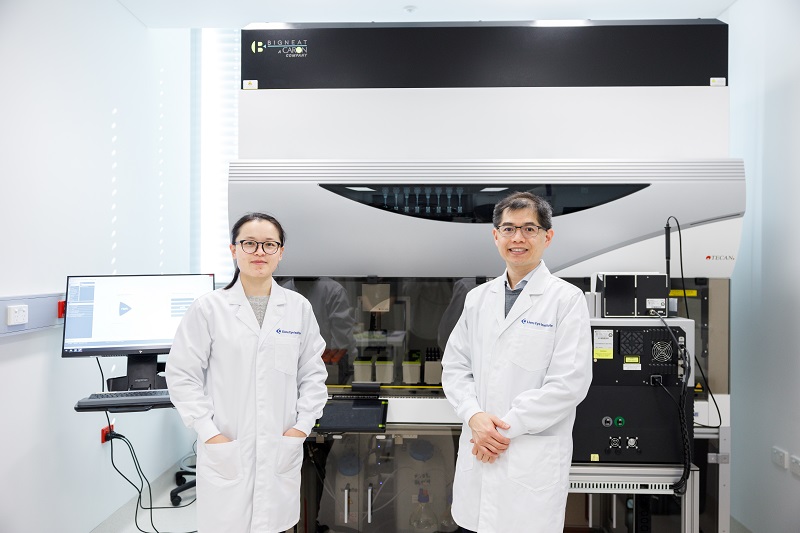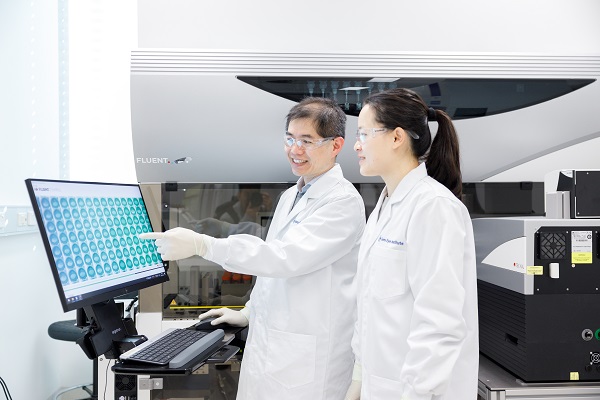
Dr Di Huang with Associate Professor Fred Chen
Congratulations to Dr Di Huang for being awarded a 2024 Retina Australia Research Grant.
Dr Huang will use the grant to develop a treatment for Stargardt disease, a hereditary eye condition resulting from alterations in the ABCA4 gene.
Stargardt disease leads to vision loss, and understanding the genetic changes is crucial for developing effective therapies. Dr Huang said her research would focus on a novel approach using splice-switching antisense oligonucleotides (SS-AONs) as a treatment. “Unlike some gene therapies, SS-AONs act as temporary “modifiers” for the gene without making permanent changes to DNA, potentially enhancing safety,” she said.
To advance this research, the team will use patient skin cells from the Western Australian Retinal Disease (WARD) Study biobank. By examining these cells, they aim to uncover specific defects associated with ABCA4 mutations, providing valuable insights for accurate genetic diagnoses and improved access to clinical trials.

Associate Professor Fred Chen and Dr Di Huang with the stem cell robot that will help to expedite Dr Huang’s research
“The project involves converting patient skin cells into laboratory-grown retinal cells, which will be crucial for testing the effectiveness of SS-AONs,” said Dr Huang.
“These SS-AON drugs will be designed to target amenable mutations found in the Stargardt disease patient group. The delivery of these drugs into the eye through injections is a notable advantage, making the treatment approach practical and potentially more accessible.”
Expected outcomes of Dr Huang’s research include the identification and characterisation of ABCA4 variants in Stargardt disease patients, providing a deeper understanding of the disease’s mechanisms. The project aims to assess the effectiveness of SS-AONs through advanced molecular techniques and comprehensive analysis, offering hope for a personalised treatment approach. Ultimately, the research strives to provide breakthroughs for individuals affected by Stargardt disease, offering a path toward improved diagnosis and potential therapeutic interventions.



